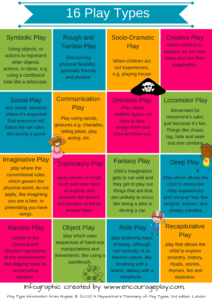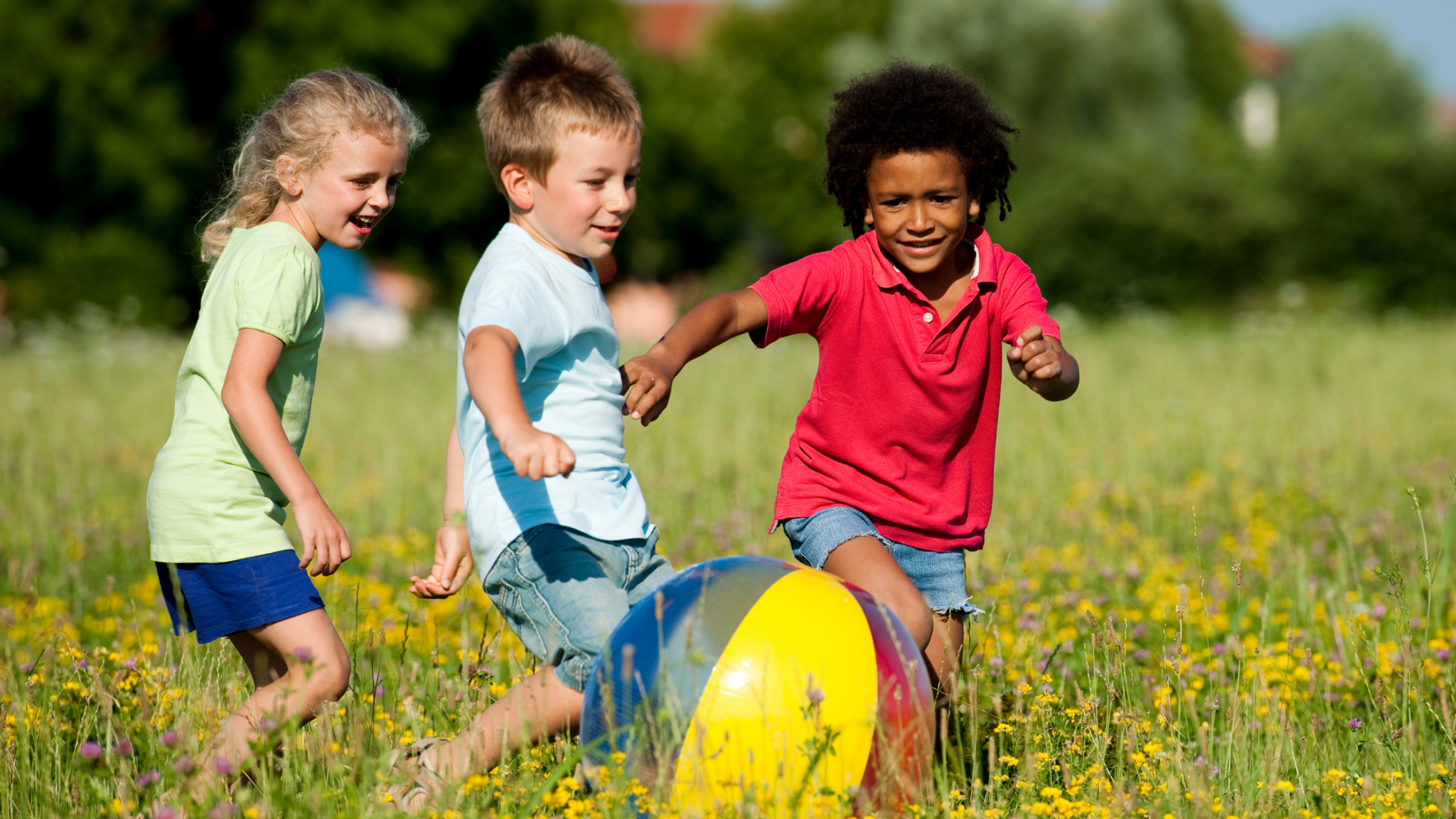Today’s the day to play
Today is the annual national Playday for play in the UK. The theme this year is Summer of Play. Focusing on the importance of play and the need for children to enjoy time playing with their friends after such a difficult year. Play is an integral part of a child’s development, it’s not frivolous. In fact, the United Nations High Commission on Human Rights has declared it a fundamental right for every child. A wealth of research now shows that through play, children have their best chance of becoming happy and well-rounded adults.
Play can manifest itself in so many ways, whether it be active play such as riding a bike or climbing a tree, or quieter play such as drawing pictures or playing a board game. In fact, Bob Hughes, identified 16 different types of play which you can see below. 
As you can see, play may look different for every child. Although they may not realise it, each experience will be teaching them life skills that they will carry with them into adulthood.
“In free play, children do what they want to do, and the learning and psychological growth that results are byproducts, not conscious goals of the activity.” Peter Gray, Ph.D., Professor of Psychology
The benefits of play on children are often focused around the early years, but it still continues to be important for school-age children and beyond. It is an essential part of growing up. The benefits of play are innumerable, we have included just a few below.
Physical Benefits
Over the last 15 years, technological innovations have transformed the childhoods of many. This so-called IGeneration of children has moved indoors. Preferring to spend their time playing online rather than heading outside playing with friends. This decline in outdoor play has led to many issues, most notably a rise in childhood obesity. Play helps to builds active, healthy bodies. It can also help develop fine and gross motor skills such as flexibility and balance. Additionally, play can help promote a long-lasting active lifestyle as children are able to engage with the world around them and blow off steam. On Summer Camps children are provided with ample opportunities for physical exercise. We provide a safe space where this new modern-day generation of children can enjoy the simple pleasures of a forgotten childhood.
Social Benefits
Play is vital for the social development of children. It teaches them how to interact with others. Providing the opportunity to share thoughts and ideas and work together to make their imaginations come to life. On our Summer Camps, the focus is on inclusion. Through cooperative play, children will learn how to listen to others, compromise, and negotiate group dynamics. Children can learn to create friendships with people from different backgrounds, opinions, and beliefs.

Emotional Benefits
Play is a great tool for helping children process and understand their emotions. It provides the opportunity to experience risk. It’s been noted that children who do not have the opportunity to experience risk through play in childhood, are more likely to feel anxious and overwhelmed in their adult life. When play is child-driven, they are able to discover their interests, passions, and explore their authentic identity. Most importantly, play brings children happiness. When children are asked about the activities that bring them happiness, they say they are happier when playing with friends than in any other situation. 
Our Summer Camps provide extraordinary opportunities for play, and exactly the right kind of encouragement for your children to try new things at their own pace. You can see our example timetables for each age group here. We understand that children need freedom from the overly structured, overly-scheduled routines that dominate their lives during the school year. Carefree playtime where children can relax and be silly is vitally important to a child’s happiness!


